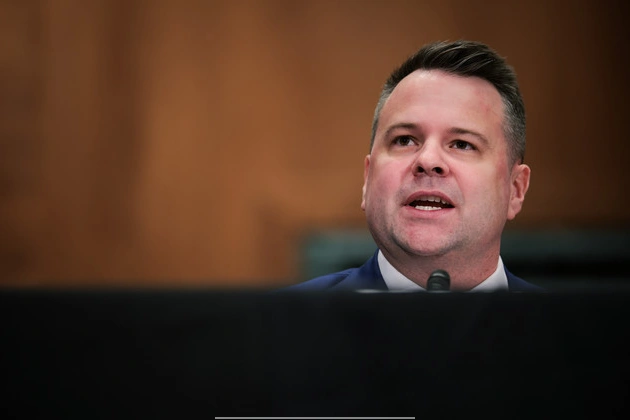
Democrats Raise Alarm Over Housing Regulator’s Actions
A significant reorganization at the leading U.S. housing regulator has sparked concerns among Democrats, who are apprehensive about the Trump administration’s swift moves towards privatizing the two major government-backed entities that play a crucial role in financing the housing sector.
The potential privatization of Fannie Mae and Freddie Mac, which collectively support approximately half of the nation’s $13 trillion residential mortgage market, has raised fears of destabilizing an already fragile industry and escalating borrowing expenses, according to Democratic critics.
Within a month of assuming office, Federal Housing Finance Agency Director Bill Pulte has ousted the majority of Fannie and Freddie’s boards while installing himself as the chair of both entities. He has also removed the CEO of Freddie Mac and two FHFA executives, placed numerous employees on leave, and curtailed or terminated various climate and minority homeownership initiatives.
While similar organizational shake-ups have occurred in other government agencies during President Donald Trump’s tenure, the recent developments in the housing sector coincide with Treasury Secretary Scott Bessent’s proposal to transfer the government’s shares in Fannie and Freddie to a newly established sovereign wealth fund, prompting questions about the administration’s intentions.
Senator Lisa Blunt Rochester of Delaware echoed the concerns of many Americans, emphasizing the continuous rise in costs and criticizing the administration’s actions as potentially exacerbating the situation.
The housing industry has endured challenges for years due to high interest rates and a severe shortage of affordable housing. Fannie Mae and Freddie Mac, which were taken into government conservatorship during the 2008 financial crisis, are seen as pillars of stability by their advocates.
Government oversight of these entities has played a vital role in making homeownership more achievable, according to Blunt Rochester, who, along with Senators Elizabeth Warren and Jack Reed, has voiced reservations about premature privatization efforts that could benefit wealthy investors.
Supporters of transitioning the two entities out of conservatorship argue that reducing the government’s influence in the housing market is long overdue and that taxpayers should not bear the burden.
Republicans such as Senate Banking Chair Tim Scott have expressed approval of Pulte’s initiatives to enhance the agency’s efficiency.
Pulte, a private equity founder and philanthropist with familial connections to a prominent homebuilding firm, recently terminated over 100 Fannie Mae employees for alleged misconduct and disclosed a 25% reduction in FHFA’s active workforce since assuming leadership.
Democratic lawmakers are urging the regulator to clarify these actions and justify the dismissals of experienced professionals in favor of inexperienced appointees loyal to Pulte.
In response to these concerns, Senate Democrats have requested the FHFA inspector general to investigate the legality of Pulte’s board changes and assess the impact of workforce reductions on the agency’s statutory obligations. They emphasize the importance of transparency in Fannie and Freddie’s operations for the stability of the housing finance system.
As discussions continue regarding the future of Fannie Mae and Freddie Mac, the FHFA emphasizes the need for a deliberate process to ensure the market’s safety and soundness without affecting mortgage rates adversely.
While the entities themselves do not lend money directly, they play a pivotal role in facilitating mortgage lending by purchasing loans and packaging them into securities for investors, thereby enabling lenders to extend more credit.
Given their substantial influence, even minor changes within Fannie Mae and Freddie Mac are closely monitored for potential repercussions on the mortgage market. The recent turmoil has raised concerns about market stability, particularly among leading Democrats.
Senator Warren criticizes the administration’s handling of the situation, highlighting the potential consequences for home mortgage costs and urging congressional oversight to protect American families from economic mismanagement.
Analysts speculate that Pulte’s restructuring efforts may be geared towards preparing the entities for eventual release from government control, potentially streamlining their operations for a smoother transition.
However, some experts caution that the current upheaval could create uncertainty and hinder the release process, emphasizing the need for a transparent and methodical approach to privatization.
While the path to privatization poses challenges, Republicans are optimistic about Pulte’s agenda, viewing it as a step towards efficient management of the government-sponsored enterprises and a more business-oriented approach to their operations.
As the housing regulator undergoes significant transformations, stakeholders across the political spectrum await further developments that could shape the future of the housing market.











